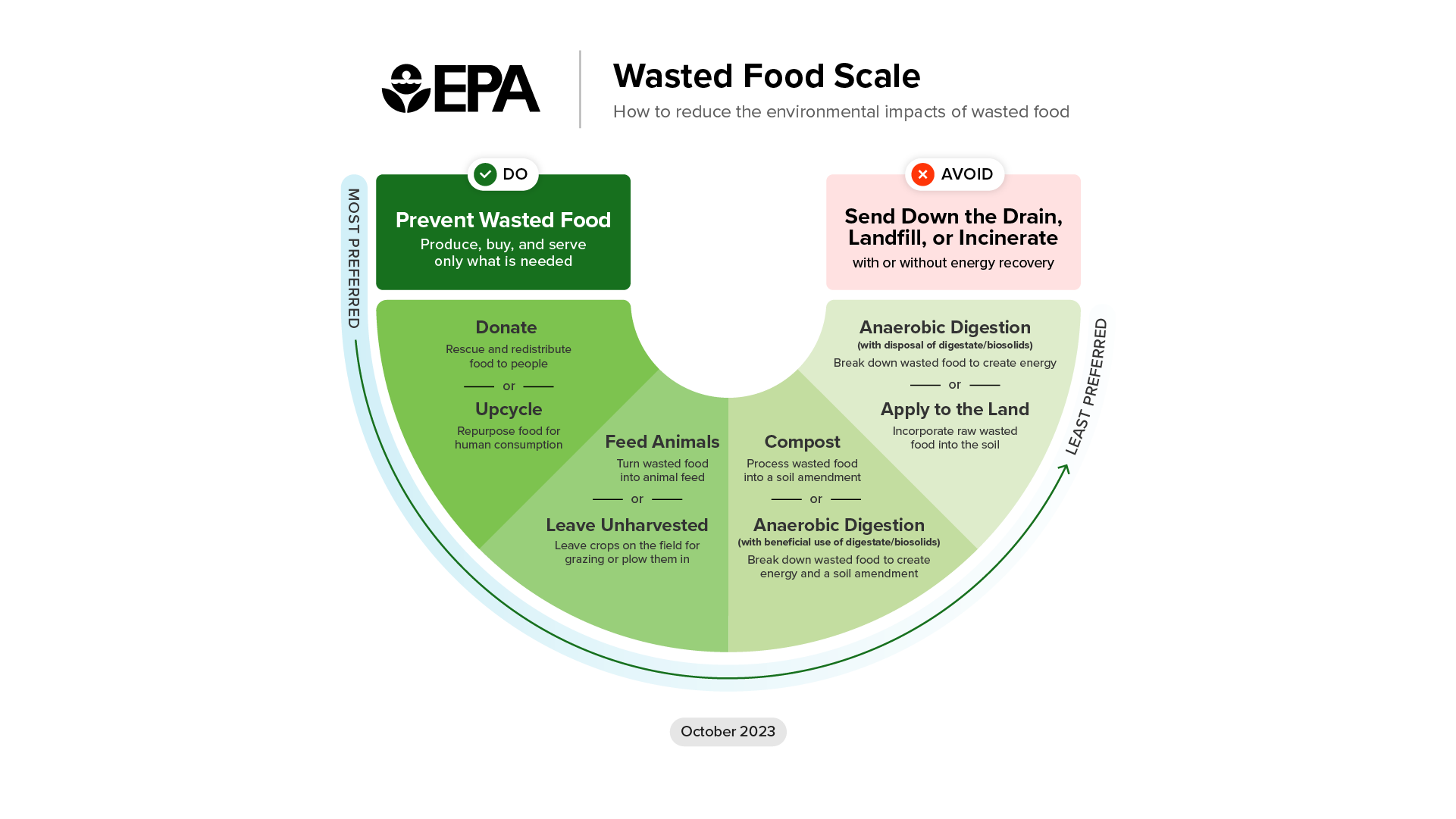Rhode Island’s Wasted Food Solutions: A Collaborative Effort by CET
CET has helped many businesses and institutions in Rhode Island learn more about food recovery and wasted food diversion opportunities.
When it comes to preventing and diverting a wide range of materials from disposal, we can offer no-cost support! We help a range of businesses, from those that are just getting started to those who want to take their existing efforts to the next level.
CET helps Rhode Island businesses and institutions divert wasted food and supports the growth of the service providers marketplace.
CET builds awareness of the RI Food Waste Recycling Law and partners with service providers such as Phood to support their source reduction technologies in dining halls across the state. These efforts and others are in partnership with Rhode Island Department of Environmental Management, Rhode Island Department of Health, Rhode Island Resource Recovery Corporation, and the Director of Food Strategy to support the goals of the Relish Rhody plan to reduce wasted food.
CET Wasted Food Resources · Rhode Island
Learn how to track waste, repurpose surplus, and reduce waste, leading to creative reuse and potential savings. CET is a partner to aid your journey in combating wasted food. Below are videos produced out of CET partnership with the Rhode Island Department of Health and the University of Rhode Island highlighting the importance and benefits for food donation and recycling in the state.
Resources For Sustainable Partners
Copy & paste resources to connect businesses with assistance to reduce waste, improve their bottom line, employee job satisfaction, and respond to customer demands for sustainable practices.
Download Rhode Island Spotlights
Food makes up 35% of all waste landfilled in Rhode Island. Prevention, donation, and recycling are integral to improving public health and achieving climate action goals. Learn how RI businesses and institutions are working together to reduce wasted food & how to join!
Resources
EPA Wasted Food Scale
CET utilizes the EPA’s Wasted Food Scale as a guiding tool to assist businesses, including restaurants, universities, colleges, event organizers, supermarkets, churches, etc. Discover relevant and partner resources on how to reduce the environmental impact of wasted food in your business across the scale.

